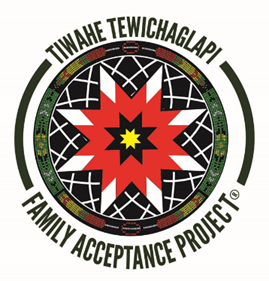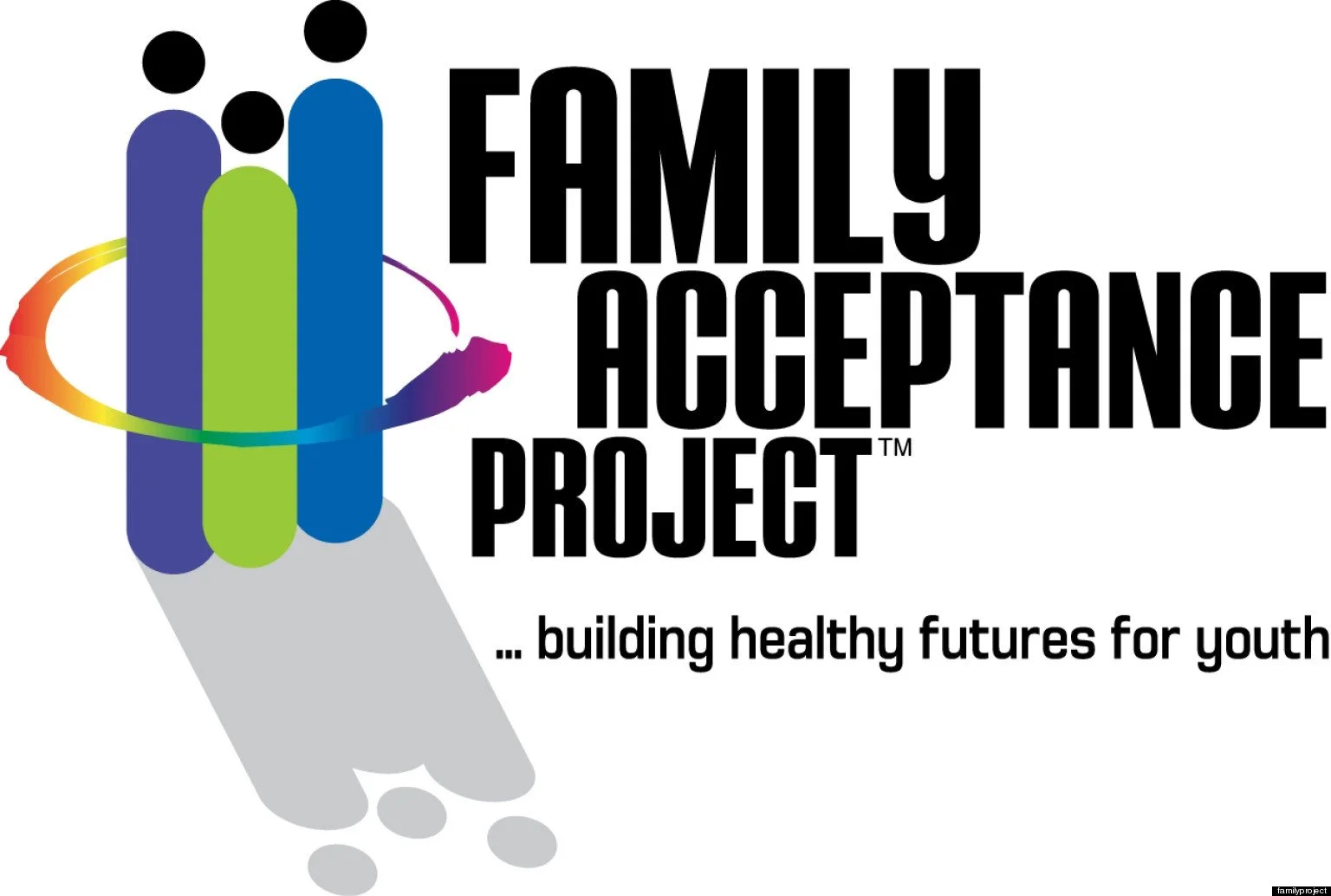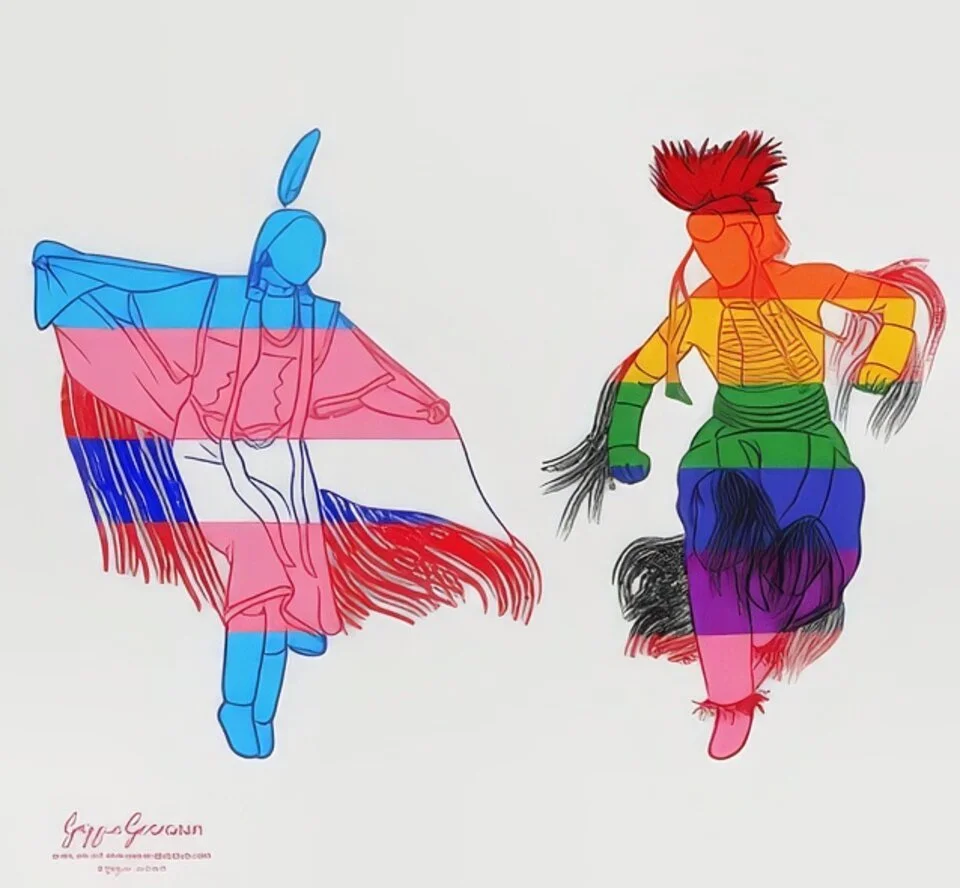Tiwahe Tewichaglapi
(Lakota Family Acceptance Project)
Thank you for your interest in the Tiwahe Tewichaglapi project!
Current Project’s Goals
The overall goal of the Tiwahe Tewichaglapi (“the family loves them” in Lakota) Project is to adapt the Family Acceptance Program’s (FAP’s) culture-based model so that it is rooted in Lakota culture, history, and virtues. After we adapt with community leadership, we will deliver the program to 2SLGBTQ+ Lakota youth and their caregivers. The goals of the program are to:
Promote parent/caregiver acceptance, respect, and support for their 2SLGBTQ+ Lakota youth.
Increase family bonding, love, support, and communication.
Increase 2SLGBTQ+ youths’ feelings of pride and hope about the future.
Reduce problems such as depression, anxiety, substance abuse, dating violence, and suicide.
Promote bright, happy, and thriving futures for 2SLGBTQ+ Lakota youth.
The project includes an Advisory Board that will include 2SLGBTQ+ Lakota youth, their caretakers, and professionals who work with 2SLGBTQ+ Lakota youth and their families, and Elders and Spiritual Leaders. These individuals will provide input on key aspects of the project to ensure that it is culturally grounded and impactful for 2SLGBTQ+ Lakota youth and their caregivers.
Need for the Project
Research shows that Indigenous Lesbian, Gay, Bisexual, Transgender, Queer, and Two-Spirit (2SLGBTQ+) youth experience high rates of mental health problems. A key factor that leads to these challenges is family rejection (family behaviors and reactions that minimize, deny, ridicule and attempt to prevent or change a child’s sexual orientation, gender identity and gender expression).
Family rejection among Indigenous 2SLGBTQ+ youth is rooted in colonization and multiple historical traumas. This includes disrupting traditional childrearing practices by forced placement in boarding schools. This and other historical traumas sought to erase Indigenous culture, including positive Two Spirit histories. Indeed, in many traditional Indigenous communities, including among the Lakota Oyate, Two Spirit relatives held important and honorable roles.
Timeline for the Study
We are currently in Year 2 of a 3-year grant from the NIH. Currently, we have an Advisory Board that includes 2SLGBTQ+ Lakota youth, their caretakers, and professionals who work with 2SLGBTQ+ Lakota youth and their families, Elders and Spiritual Leaders. These individuals provide input on key aspects of the project to ensure that it is culturally grounded and impactful for 2SLGBTQ+ Lakota youth and their caregivers. To learn more about the Advisory Board and to express interest, please call, text, or email us (contact information below)!
In the first year of the project, we met with 2SLGBTQ+ Lakota youth, their caretakers, and professionals who work with 2SLGBTQ+ Lakota youth over 2 weekends in Rapid City and Pine Ridge to ask for in-depth input and guidance on implementing FAP with the Lakota Oyate. This in-depth information and ongoing input from the Advisory Board has been used to create the Tiwahe Tewichaglapi Program. To read more about the outcomes of these sessions, please click on the link and read the “TT Community Report”.
We have just begun recruitment to enroll 2SLGBTQ+ Lakota youth and their caretakers on Pine Ridge and in Rapid City in the Tiwahe Tewichaglapi program. The program content will be delivered by trained Lakota staff. During the program, we will gather in-depth feedback from youth and caregivers to fine tune and improve the program for future larger implementation with support from our Advisory Board to further refine the Tiwahe Tewichaglapi Program for additional families.
A larger implementation of the Tiwahe Tewichaglapi Program with an anticipated 85 2SLGBTQ+ Lakota youth and their caretakers (about half in Rapid City and about half on Pine Ridge) is anticipated to begin in the Spring of 2026. Some families will receive the program right away and others will receive the program a little later. Youth and families will provide ongoing feedback through surveys to help us improve the program. The Oglala Sioux Tribe owns the data. Families will be paid for their time, meals will be served at all program sessions, and transportation will be provided.
With approval from the Oglala Sioux Tribe Research Review Board, we will share results with diverse audiences that include community members, tribal leaders, researchers, policymakers, educators, and spiritual/religious leaders, families and youth. We will also work to ensure that the program remains available on Pine Ridge and in Rapid City after the grant period ends. And we will work to expand the program to other tribal communities across the U.S.
Research & Intervention Foundation
The Family Acceptance Project®(FAP) is a research, education and intervention program that was founded more than 20 years ago to help ethnically, racially and spiritually/religiously diverse parents and caregivers to learn to support and advocate for their 2SLGBTQ+ children and youth to prevent health and mental health problems and promote well-being. FAP conducted the first research on sexual minority and gender diverse youth and families and developed the first family support model to decrease family rejection and increase acceptance and support. FAP’s work is grounded in the family’s culture and spirituality/faith traditions.
Funding and Leadership
This project is funded by the National Institute of Mental Health (NIMH), the lead federal agency for research on mental disorders. NIMH is one of the 27 Institutes and Centers that make up the National Institutes of Health (NIH), the largest biomedical research agency in the world. The project is led by Dr. Katie Edwards, a queer professor at the University of Michigan.
Since 2016, Dr. Edwards (who resides part time in Wakpamni), has had the honor of working in partnership with the Lakota Oyate to implement collaborative community health programs to prevent major health risks and promote well-being among Lakota children and adolescents. During gatherings with 2SLGBTQ+ Lakota youth and adults who care for and work with them, youth and adults were moved by the possibility of a family support program and asked for a version of FAP that would be adapted for Lakota culture and available on the Pine Ridge Reservation and in Rapid City with Lakota 2SLGBTQ+youth and their tiwahe (families).
Honoring community voices and with permission from the Oglala Sioux Tribe, Dr. Edwards and Dr. Caitlin Ryan (FAP founder and Director) along with Lakota staff and collaborators submitted a proposal to the National Institutes of Health (NIH) to culturally adapt, implement, and evaluate FAP’s family support model on Pine Ridge and in Rapid City which was recently funded.



